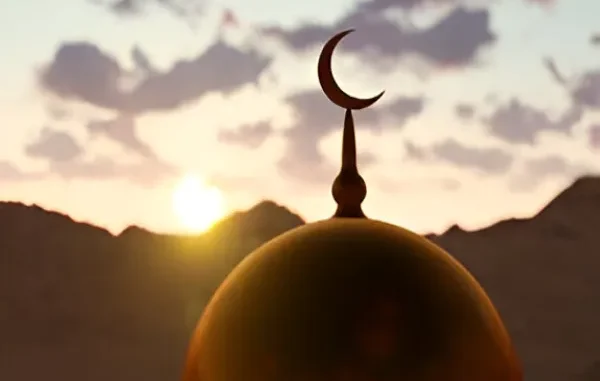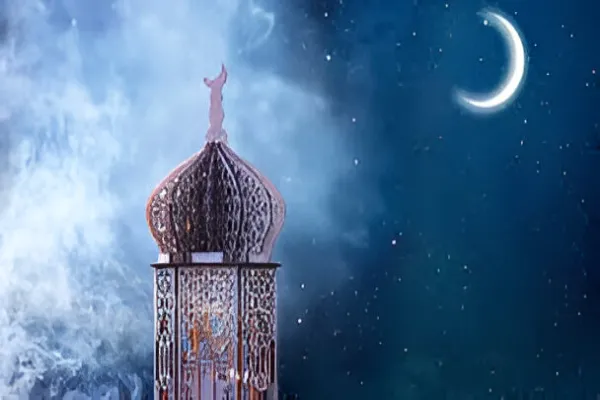
Fin du Ramadan is the French term for the Eid al-Fitr, the Muslim holiday that marks the end of the month of Ramadan. It is a joyous celebration that is observed by Muslims around the world.
Significance of Fin du Ramadan
Eid al-Fitr is a time for Muslims to celebrate the completion of a month of fasting, prayer, and spiritual reflection. It is a time to give thanks to God, seek forgiveness for sins, and strengthen community bonds.
Traditions of Fin du Ramadan
The celebrations of Fin du Ramadan vary depending on the region and culture, but some common traditions include:
- Attending Eid prayers: Muslims typically attend special Eid prayers held at mosques or community centers.
- Exchanging gifts: Family and friends exchange gifts to show their love and appreciation.
- Preparing special meals: Families gather for festive meals that often feature traditional dishes.
- Giving charity: Muslims are encouraged to give charity to those in need during Eid al-Fitr.
- Visiting family and friends: People visit each other’s homes to socialize and celebrate together.
When is Fin du Ramadan?
The exact date of Fin du Ramadan changes each year because the Islamic calendar is based on lunar cycles. The month of Ramadan begins with the sighting of the new moon, and Eid al-Fitr is celebrated on the first day of the following month, Shawwal.
In 2024, Fin du Ramadan was celebrated on April 9. In 2025, it is expected to be observed on March 28.
Importance of Fin du Ramadan
Fin du Ramadan is a significant holiday for Muslims worldwide. It is a time to celebrate their faith, strengthen their community, and express gratitude for God’s blessings. The holiday also serves as a reminder of the importance of compassion, generosity, and spiritual growth.
FAQ About Fin du Ramadan (Eid al-Fitr)
What is Fin du Ramadan?
Fin du Ramadan, also known as Eid al-Fitr, is the Muslim holiday that marks the end of the holy month of Ramadan. It is a joyous celebration observed by Muslims worldwide, signifying the culmination of a month dedicated to spiritual reflection, fasting, and prayer.
When is Fin du Ramadan celebrated?
The exact date of Fin du Ramadan changes each year as the Islamic calendar follows a lunar cycle. Ramadan begins with the sighting of the new moon, and Eid al-Fitr falls on the first day of the subsequent month, Shawwal.
What are the main traditions of Fin du Ramadan?
Eid al-Fitr celebrations are filled with joy, festivities, and a sense of community. Some common traditions include:

- Attending Eid prayers: Muslims gather for special Eid prayers held at mosques or community centers.
- Exchanging gifts: Family and friends exchange gifts as tokens of love, appreciation, and goodwill.
- Preparing special meals: Families come together to enjoy festive meals featuring traditional Eid delicacies.
- Giving charity: Muslims are encouraged to extend charity to those in need, embodying the spirit of generosity and compassion.
- Visiting family and friends: Homes are filled with laughter and cheer as people visit one another to socialize and celebrate together.
What is the significance of Fin du Ramadan?
Fin du Ramadan holds immense significance for Muslims worldwide, marking the successful completion of a month dedicated to spiritual growth and self-discipline. It is a time to:
- Express gratitude to God: Muslims offer thanks for the blessings bestowed upon them during Ramadan and throughout their lives.
- Seek forgiveness for sins: Eid al-Fitr is a time for seeking forgiveness from God and seeking reconciliation with others.
- Strengthen community bonds: Muslims come together to reaffirm their faith, share blessings, and foster a sense of unity and brotherhood.
- Celebrate spiritual achievements: Eid al-Fitr marks the culmination of a month of spiritual purification, personal reflection, and increased closeness to God.
How can I celebrate Fin du Ramadan even if I am not Muslim?
While Eid al-Fitr is a specifically Muslim holiday, there are ways to show respect and understanding during this festive period:
- Greet Muslim friends and colleagues: Offer a warm “Eid Mubarak” (meaning “Blessed Eid”) to express your well wishes.
- Learn about Eid traditions: Take the time to understand the significance and customs associated with Eid al-Fitr.
- Be mindful of sensitivities: Avoid insensitive comments or actions that could be disrespectful during this important religious celebration.
- Contribute to the community spirit: Engage in acts of kindness and charity, embodying the spirit of Eid al-Fitr’s emphasis on compassion and generosity.
By understanding and respecting the traditions of Fin du Ramadan, we can foster inclusivity, cross-cultural understanding, and a more harmonious society.
Leave a Reply